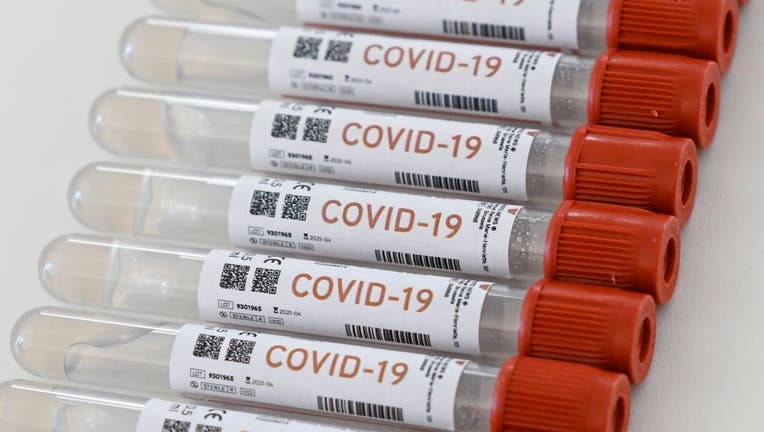Study speculates mixed-age weekend hangouts may increase COVID-19 deaths

Photo by Vincent Kalut / Photonews via Getty Images
KTVU - Researchers from Tel Aviv University have observed a striking seven-day trend in the occurrence of COVID-19 cases and deaths: people are dying from the virus in peak numbers on Thursdays and Fridays.
Those cases fall 12-14 days after the weekend, and the researchers speculate that intergenerational social interactions on the weekend might be killing at-risk people.
The paper, which was uploaded to medRxiv, the medical sciences pre-print server, has not yet been peer reviewed. Some medical researchers who would normally wait up to a year for their data to be printed in a peer-reviewed publication are uploading their papers to the site in hopes of distributing their findings about the coronavirus more quickly to the public.
The practice of posting non-peer reviewed research papers online is common in some fields of science, and similar websites exist, such as bioRxiv and chemRxiv, that allow scientists to share their findings publicly while waiting for the sometimes months-long peer review process. These websites also implement their own screening procedures.
In the case of the Tel Aviv University paper, authors looked at data about deaths during a seven-day cycle of COVID-19 cases in 12 North American and European countries, including the United States.
They found that in seven of the 12 countries, numbers of new cases peaked on Friday, five days after the weekend—the amount of time after which an infected person usually begins to show clinical symptoms.
Further, death tolls peaked on Wednesday to Thursday, which they said corresponds with the average two-week hospitalization before death.
Given an average 12-14 day timeframe from hospitalization to death, the authors conclude, these findings suggest that more people are becoming infected on the weekend than any other day of the week.
The exact reasons for this apparently pattern cannot be concluded, so the researchers speculate that changes in behavior between weekdays and weekends are to blame.
“Because the restrictions imposed in many countries or adopted voluntarily include limiting workplace hours for those in high-risk populations, susceptible/older people may become infected at higher rates during weekend-days compared to weekdays, as a result of increased social interactions with younger relatives or friends, as indeed indicated previously,” the paper states.
“Under this assumption," the authors continue, "it follows that these vulnerable individuals will exhibit clinical signs of COVID -19 infection at higher rates ~5 days after the weekend, on Thursday-Friday.”
In certain countries, the paper found that the variance in deaths based on the day of the week was very high. In Sweden for instance, case numbers were 50% higher on these peak days than the overall weekly average.
As most new cases and deaths due to COVID-19 occur in people older than 70, researchers said, they believe that this vulnerable population is infected by younger relatives or friends unaware of carrying the virus.
“If this postulation indeed accounts for the observed 7-day pattern, many lives may be saved by greater adherence to social distancing, especially during the weekend,” the paper states.
The researchers also wrote that their hypothesis about mixed-age gatherings should be re-tested, and that “one should not ignore alternative explanations” for the seven-day cycle.
Other explanations for the trend might be delayed reporting of cases and deaths on the weekend which are “erroneously reported and ascribed to 2-4 days later,” and variance in weekly rhythms of hospital care quality.
Pablo Blinder, a researcher in Tel Aviv University’s neuroscience lab and an author of the paper, tweeted that his findings are something for health officials to look at, but also urged caution about making any firm conclusions.
“We hope that our analysis will trigger local health authorities to ascertain or improve the accuracy of the reported dates," the paper states, "and, if proven to be accurate, act accordingly to prevent more actively the spread of COVID19."
Caroline Hart is a producer, writer, and investigator for KTVU. She can be reached at caroline.hart@foxtv.com or on Twitter @caroline_hart_

